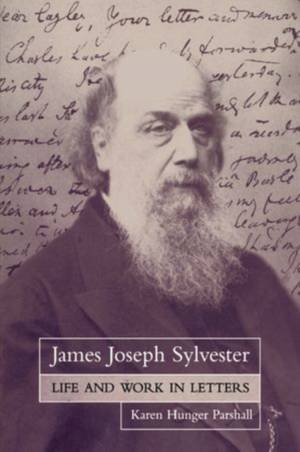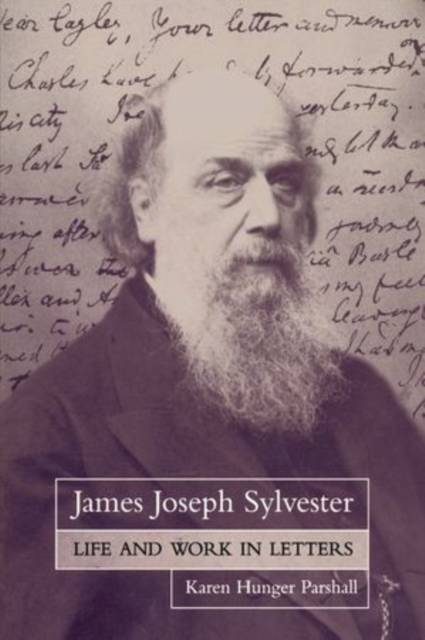
- Afhalen na 1 uur in een winkel met voorraad
- Gratis thuislevering in België vanaf € 30
- Ruim aanbod met 7 miljoen producten
- Afhalen na 1 uur in een winkel met voorraad
- Gratis thuislevering in België vanaf € 30
- Ruim aanbod met 7 miljoen producten
Zoeken
€ 93,45
+ 186 punten
Omschrijving
In the folklore of mathematics, James Joseph Sylvester (1814-1897) is the eccentric, hot-tempered, sword-cane-wielding, nineteenth-century British Jew who, together with the taciturn Arthur Cayley, developed a theory and language of invariants that then died spectacularly in the 1890s as a result of David Hilbert's groundbreaking, 'modern' techniques. This, like all folklore, has some grounding in fact but owes much to fiction. The present volume brings together for the first time 140 letters from Sylvester's correspondence in an effort to establish the true picture. It reveals - through the letters as well as through the detailed mathematical and historical commentary accompanying them - Sylvester the friend, man of principle, mathematician, poet, professor, scientific activist, social observer, traveller. It also provides a detailed look at Sylvester's thoughts and thought processes as it shows him acting in both personal and professional spheres over the course of his
eighty-two year life. The Sylvester who emerges from this analysis - unlike the Sylvester of the folkloric caricature - offers deep insight into the development of the technical and social structures of mathematics.
eighty-two year life. The Sylvester who emerges from this analysis - unlike the Sylvester of the folkloric caricature - offers deep insight into the development of the technical and social structures of mathematics.
Specificaties
Betrokkenen
- Auteur(s):
- Uitgeverij:
Inhoud
- Aantal bladzijden:
- 340
- Taal:
- Engels
Eigenschappen
- Productcode (EAN):
- 9780199671380
- Verschijningsdatum:
- 6/04/2013
- Uitvoering:
- Paperback
- Formaat:
- Trade paperback (VS)
- Afmetingen:
- 231 mm x 155 mm
- Gewicht:
- 521 g

Alleen bij Standaard Boekhandel
+ 186 punten op je klantenkaart van Standaard Boekhandel
Beoordelingen
We publiceren alleen reviews die voldoen aan de voorwaarden voor reviews. Bekijk onze voorwaarden voor reviews.











